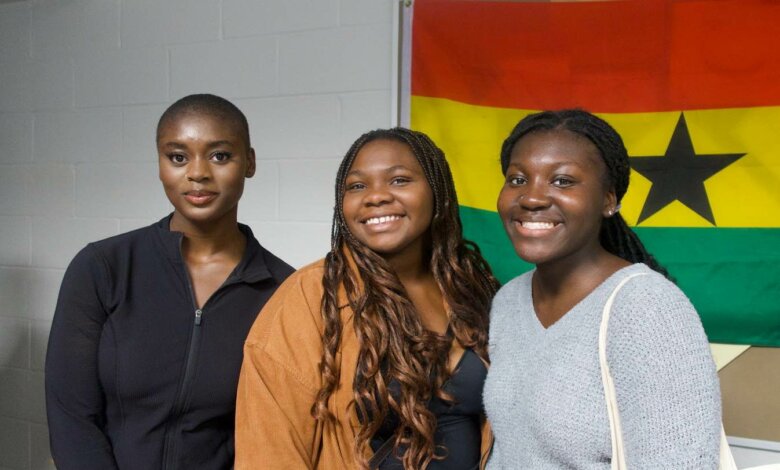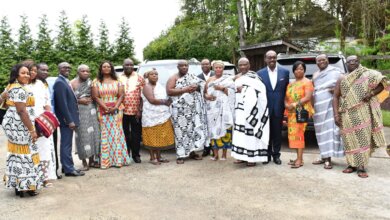What is Ghana’s ‘Right Of Abode’ status for people in the diaspora?

Right of Abode (ROA) status is a form of indefinite residence and confers certain settled residence rights on the holder. This includes the removal of restrictions on entry into and exit from Ghana, and restrictions on work authorisations, among others. This status is not open to all noncitizens. It is only open to people of African descent in the diaspora.
There are two types of ROA in Ghana. One is for persons who previously held Ghanaian citizenship, having renounced it in favour of the citizenship of another country. The other is for persons of African descent in the Diaspora. For the purposes of this article, the discussion focuses on the latter group, which is persons of African descent in the diaspora.
In recent years, there has been a huge excitement and interest in Ghana from the African American community in the United States and persons from the Caribbean. Similar interests also emanate from the UK and many other countries with black diaspora origins. The euphoria is believed to have been partly fuelled by the Government of Ghana’s Year of Return initiative in 2019.
The Year of Return, in 2019, was linked to the 400th anniversary of slaves landing in the US, which is said to be the first recorded arrival of enslaved Africans in the Americas. Ghana was a key transit point for transporting slaves and the president of Ghana, President Nana Akuffo Addo said his country felt a responsibility to welcome all those who could trace their ancestry to Africa. Several of the inquiry regarding residence in Ghana has been in reference to ROA.
The appear to be varied reasons for the growing interest. It is believed that this might be influenced by the supposed benefits that are said to accrue from ROA status. There is also a belief among others that ROA is citizenship, and a means for them to hold dual citizenship. In short, the appears to be an incredible glut of misinformation out there regarding ROA status.
In this article, we will attempt to unravel the misconceptions by considering the definition of a “person of African descent in the Diaspora”, the benefits of ROA status, the procedure for making an application, and the nature of ROA in contradistinction to citizenship.
Who is a person of African descent in the diaspora?
A person of African descent is clearly defined. It is defined as a person whose immediate forebears have resided outside the African continent for at least 3 generations but whose origin, either by documentary proof or by ethnic characteristics is African.
What are the benefits of ROA Status?
Right of Abode status is a form of indefinite residence and confers certain settled residence rights on the holder. This includes the removal of restrictions on entry into and exit from Ghana, and restrictions on work authorisations, among others. Specifically, the holder of ROA enjoys:
- the right to live indefinitely in Ghana.
- the right to enter Ghana without a visa.
- the right to work or be employed without a work permit.
- the holder is subject to the laws of Ghana.
In addition, the dependents of a ROA holder are eligible to join or remain with the holder on dependent permits. A dependent permit is issued on such terms and conditions as may be specified in the permit. In short, dependents of ROA status are not eligible for the status of ROA. They must qualify in their own right to be eligible for the status.
What is the process of applying for a ROA?
An application for ROA must be made to the Minister of the Interior through the Director of Immigration. The application must be made in person. It must be made on the appropriate form with all relevant supporting documents. The applicant will be subject to a verification process to determine whether they satisfy the eligibility requirements.
Can a person apply for a ROA immediately after they enter Ghana?
No. It is not possible to do so. There is no direct or immediate route for a person to obtain indefinite residence in Ghana. An applicant for ROA must satisfy a residency requirement. To be eligible, they must have lived in Ghana for a total period of 7 years. They must have lived in Ghana for a continuous period of 2 years immediately preceding the application. Then, immediately preceding the 2 years, they must have lived in Ghana for an aggregate period of not less than 5 years.
Can an application for ROA be made abroad online?
An application for ROA cannot be made abroad. There is no online platform by which the application can be made. The application must be made in person with all supporting documents at the immigration office in Accra, Ghana. The applicant will be subject to a personal verification process to determine if they satisfy the eligibility requirements under the law.
What are the requirements for ROA?
There are eligibility requirements for a ROA. The applicant must be at least 18 years and must satisfy all the following:
- They must show that they are of good character. This must be proved by character reference from two Ghanaians who are notaries public, lawyers, senior public officers, or other classes of persons approved by the Minister.
- They must satisfy criminal check records by showing that they have not been convicted of any criminal offence to imprisonment for a term of 12 months or more.
- They must provide documentary evidence of financial means.
- They must prove that they are capable of making a substantial contribution to the development of Ghana.
- They must also satisfy a residency requirement. They must show that they have lived in Ghana for a total period of 7 years. Of the 7 years residency requirement, they must have lived in Ghana for 2 years immediately preceding the application. The remaining 5 years is computed in aggregate.
What is the process of applying for a Right of Abode?
An application for a Right of Abode must be made to the Minister of the Interior through the Director of Immigration. The application must be made in person. It must be made on the appropriate form with all relevant supporting documents. The applicant will be subject to a verification process to determine whether they satisfy the eligibility requirements.
What are the required supporting documents?
- Application letter from the applicant
- Letter of support from applicant’s company or employer in Ghana as applicable
- Copies of residence permit to prove the residence requirement
- Reference letters from two Ghanaian referees. The referees must be notaries public, lawyers, or senior public officers. They must provide copies of their national IDs in attachment to the letters.
- Personal bank statement to prove financial standing.
- Copies of business license
- Evidence of capability of making a substantial contribution to Ghana’s development. This may be in the form of:
- investment portfolio,
- audited accounts,
- economic contribution in the form of employment of Ghanaian nationals, tax contributions as evidenced in personal and company tax clearance, audited accounts for the most recent 3 years
- Social contribution in the form of provision of social or humanitarian efforts or activities over a period and supported by credible evidence
- Copy of noncitizen ID
- The police report from Ghana and the applicant’s country of residence or origin.
- Medical examination clearance
Is the right of abode in Ghana the same as citizenship?
ROA status is not the same as citizenship. In other words, ROA status does not confer citizenship on the holder. Consequently, the rights and privileges that attach to citizenship do not apply to the holder of a ROA status. Likewise, certain limitations on rights that attach to a foreign national in respect of certain rights apply to the holder of ROA status.
For example, the holder of a ROA status cannot acquire an interest in land which exceeds 50 years at any one time. They cannot vote, hold public office or contest in an election. They can also be stripped of their status if they are found to be a threat to national security or found to have obtained their status illegally.
At best, the status of a ROA is in the same breath as indefinite residence status. They both grant the same rights and privileges which are:
- right to live indefinitely in Ghana
- right to enter Ghana without a visa
- right to work or be employed without a work permit
- subject to the laws of Ghana.
Can a person lose their ROA status?
A person may lose their status if a High Court in Ghana, on application by the Attorney-General of Ghana, finds any of the following:
- That the activity of the person is inimical to State security
- That the person’s activity is prejudicial to public order, public health, morality, or public interest.
- The status was acquired by fraud or any other illegal or irregular means
- That the person no longer qualifies under the relevant laws.
In practice, there appears to be a contradiction between the excitement and euphoria surrounding ROA and the practical realities of the application. Many foreign nationals become disenchanted when they learn the length of the residence requirement. Some also find it difficult to overcome the illusion that ROA is in fact not citizenship.
The result is that applications are scarcely submitted because the residence requirement automatically renders potential applicants clearly ineligible, and nor does it give them any potential prospects of becoming eligible in the immediate future.
Data obtained from the Ghana Immigration Service shows that only 12 applications were received and transmitted to the Ministry of Interior for onward processing for the fiscal year 2021. Interestingly, this number combines ROA applications for Ghanaians who lost their citizenship and persons of African descent. It is therefore highly likely that the number of persons of African descent will be significantly lower.
If the government really wishes to carry through its policy of encouraging the return of the Diaspora and promoting foreign investment, a second look at the current immigration regime, including the rules on ROA might be long overdue.
Source: Acheampong & Associates
Oral Ofori is Founder and Publisher at www.TheAfricanDream.net, a digital storyteller and producer, and also an information and research consultant.





